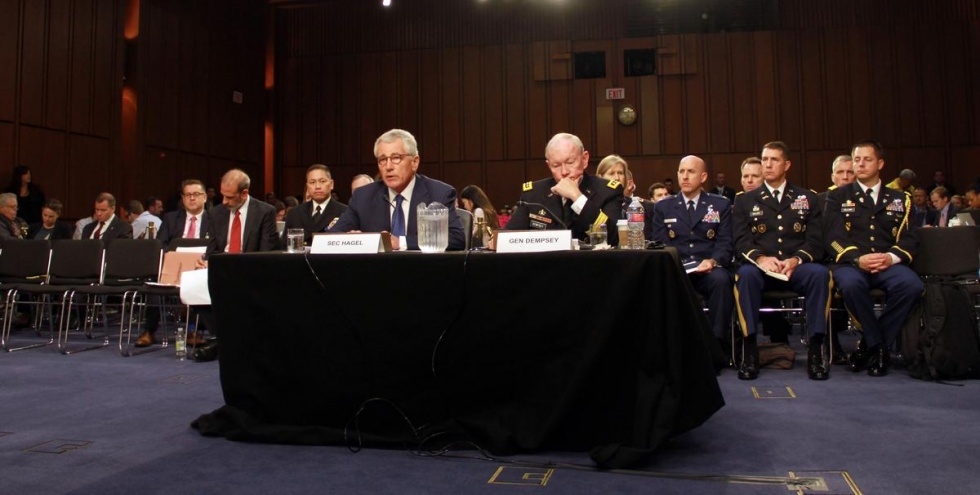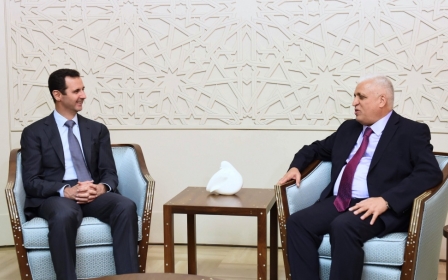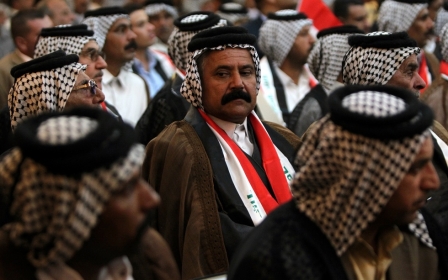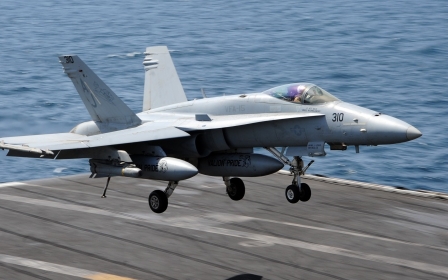Top US general suggests combat troops may go to Iraq

Debate about the prospect sending US combat troops into Iraq continued on Tuesday, with a top general suggesting that President Barack Obama consider sending troops into battle, if the current aerial strategy fails.
General Martin Dempsey, the chairman of the US Joint Chiefs of Staff, said future battles in Iraq could require American troops to join combat missions with Baghdad government forces to help direct American warplanes.
"My view at this point is that this coalition is the appropriate way forward. I believe that will prove true,” he said. “But if it fails to be true, and if there are threats to the United States, then I of course would go back to the president and make a recommendation that may include the use of US military ground forces."
Obama has so far rejected such proposals but is said to have requested updates on a "case by case basis," Dempsey told a meeting of Senate Armed Services Committee.
Defence Secretary and Pentagon Chief Chuck Hagel, however, stressed that no such decision had been made. While the US would soon send 1,600 troops to Baghdad and Erbil, these forces will function in a strictly non-combat support role, Hagel told the committee.
US forces will not have a "combat" role in Iraq but will provide support to Iraqi and Kurdish forces that remained the “best counterweight against [Islamic State],” Hagel said.
The US has been building international support for its anti-IS coalition for more than a week, and has now won the backing of 10 Arab states, who it expects will play a key role in pushing back the IS threat.
In the wake of the diplomatic offensive, Hagel announced that the US was now “broadening our air campaign” against Islamic State targets.
"This plan includes targeted actions against [Islamic State] safe havens in Syria - including its command and control, logistics capabilities, and infrastructure," he added, while adding that the US was now ready to act against the militants in Syria.
Obama - who first ordered strikes against IS position in Iraq in August - had until recently shied away from pursuing the militants into Syria, fearing that such moves could strengthen the hand of Syrian President Bashar al-Assad who is embroiled in a bloody three-and-a-half-year uprising against his rule.
The West has long supported what it terms “moderate” opposition forces in Syria but it initially rejected calls to arm the rebels in case the arms fell into the hands of more extreme factions, like IS.
According to Hagel, this long-term approach is now likely to be shelves with Saudi Arabia set to provide training to some 5,000 Syrian opposition fighters who may also be given lighter artillery and weapons.
John Boehner, the top US Republican backed the calls, saying that it looked like Obama finally had a “sound” plan.
"Frankly I think the president's request is a sound one," House Speaker Boehner told reporters after the Senate committee meeting.
"There's no reason for us not to do what the president asked us to do," he added, while stressing that his Republican supporters still felt there was "a lot more" that could be done in both Iraq and Syria.
Congress is now scheduled to begin debating the extension of the airstrikes to Syria tomorrow, with most analyst predicting that the measure will be approved before the end of the week.
Syria's President Bashar al-Assad has slammed the developments, saying that any campaign against "terrorism" must start with pressure on countries that support armed groups in Syria and Iraq.
"The battle against terrorism starts with pressure on the countries that support and finance terrorist groups in Syria and Iraq and pretend that they want to fight against terrorism," state news agency SANA quoted Assad as saying following his meet with Iraq's National Security adviser Falah al-Fayadh, who updated him "on efforts by the Iraqi government to confront terrorism."
Damascus characterises all those seeking Assad's ouster as "terrorists" and accuses countries backing the Syrian uprising, including the United States, Qatar, Saudi Arabia and Turkey, of financing or arming IS.
Rolling back IS
Since the US began bombing IS positions in Iraq, the anti-IS camp has managed to stem the militant’s advance. On Tuesday, Iraqi Kurdish Peshmerga fighters said that they recaptured seven Christian villages in northern Iraq from IS, putting further distance between Erbil and the IS stronghold of Mosul.
"We liberated those villages with the support of US aircraft," Major Sardar Ali told AFP in reference to the Nineveh plains area between Erbil and Iraq’s second city Mosul.
Hagel, however, has continued to stress caution and has once again called on the Baghdad to enact political reform aimed at better integrating the country’s minorities.
"American military power alone cannot, will not eradicate the threats posed by [Islamic State] to the United States, our allies, and our friends and partners in the region," he said.
"Iraq’s continued political progress toward a more inclusive and representative government in its programs of reform and reconciliation will be critical to achieve the progress required."
New MEE newsletter: Jerusalem Dispatch
Sign up to get the latest insights and analysis on Israel-Palestine, alongside Turkey Unpacked and other MEE newsletters
Middle East Eye delivers independent and unrivalled coverage and analysis of the Middle East, North Africa and beyond. To learn more about republishing this content and the associated fees, please fill out this form. More about MEE can be found here.




